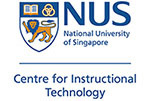CIT’s media producer, Prakash Perumal Haridas was featured on the article; ‘The algorithm does it for you’: Why social media users are ditching 'boring' Facebook and Instagram for shiny new toys, by CNA.
Prakash was reached out by a journalist from the CNA Digital team who wanted to understand why some Singaporeans were making the switch from mainstream social media services to alternative options.
Prakash made the switch from Twitter to Mastodon in early November 2022. Mastadon is a network of privately operated servers. Prakash told CNA he likes how Mastodon focuses on the content more than likes and retweets, which was “different and quirky” for him.
After using Twitter for about 12 years, Prakash has found a new authentic network to connect with other Singaporeans from different walks of life. He mentioned that this is a new experience he did not have on Twitter.
Prakash also engages social media to fine tune his skills as a Media Producer. “Social media platforms allow me to learn new skills related to graphics, animation and video post-production. I get to be more efficient in troubleshooting common or obscure technical issues. They allow me to discover new ways of creating from other fellow creators around the world” he added.
With his new found experience and skills, he recommends Mastodon to fellow NUS Staffs and Students who are opened to trying out new platforms, motivated to find their own content instead of relying on algorithms to feed them content, to build and engage with a community and comfortable to join in or start a conversation.
Prakash also mentioned that, “Mastodon is led and moderated by admins and each instance will have its own rules for users to abide by. This helps with establishing ground rules for how people are meant to behave and help to reduce online abuse”.
In a nutshell, Prakash encourages everyone to pick and engage with social media platforms that encourage meaningful connections, learning useful skills and absorbing the intended content instead of indulging in the idea of ‘likes and shares’.
Click here to read the full article:
